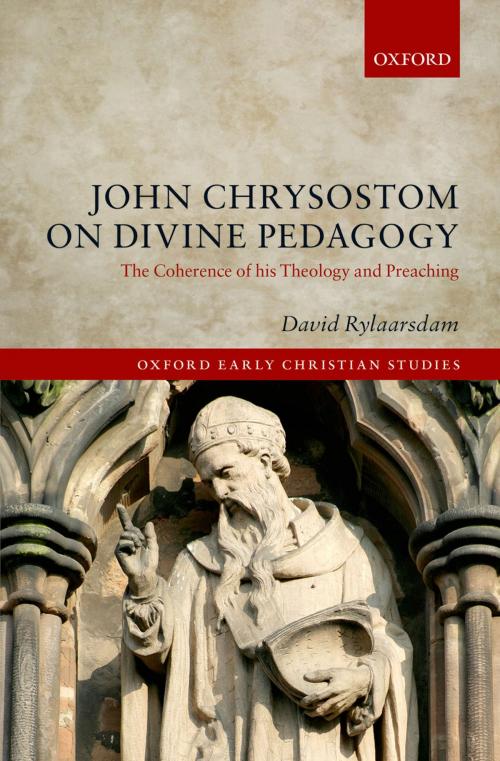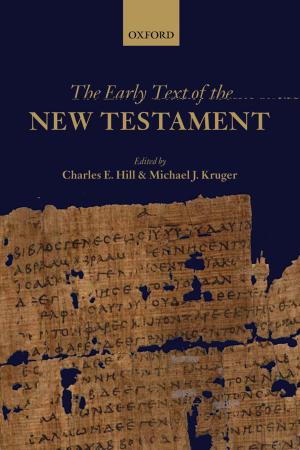John Chrysostom on Divine Pedagogy: The Coherence of his Theology and Preaching
Nonfiction, Religion & Spirituality, Theology, Christianity| Author: | David Rylaarsdam | ISBN: | 9780191089961 |
| Publisher: | OUP Oxford | Publication: | October 30, 2014 |
| Imprint: | OUP Oxford | Language: | English |
| Author: | David Rylaarsdam |
| ISBN: | 9780191089961 |
| Publisher: | OUP Oxford |
| Publication: | October 30, 2014 |
| Imprint: | OUP Oxford |
| Language: | English |
Contrary to the portrayals of Chrysostom as a theologically impaired, moralizing sophist, this book argues that his thinking is remarkably coherent when it is understood on his own terms and within his culture. Chrysostom depicts God as a teacher of philosophy who adaptably guides people toward salvation. Since the theme of divine adaptability influences every major area of Chrysostom's thought, tracing this concept provides a thorough introduction to his theology. It also explains, at least in part, several striking features of his homilies, including his supposed inconsistencies, his harsh rhetoric and apparent political naïveté, his intentionally abridged and exoteric theological discussions, and his lack of allegiance to an "Antiochene school." In addition to illuminating such topics, the concept of adaptability stands at one of the busiest intersections of Late Antique culture, for it is an important idea found in rhetoric and discussions about the best methods of teaching philosophy. Consequently, adaptability is an ingredient in the classical project of paideia, and Chrysostom is a Christian philosopher who seeks to transform this powerful tradition of formation. He gives his Christianized paideia a theological foundation by adapting and seamlessly integrating traditional pedagogical methods into his reading and communication of Scripture. David Rylaarsdam provides an in-depth case study of one prominent leader's attempt to transform culture by forming a coherent theological discourse that was adapted to the level of the masses.
Contrary to the portrayals of Chrysostom as a theologically impaired, moralizing sophist, this book argues that his thinking is remarkably coherent when it is understood on his own terms and within his culture. Chrysostom depicts God as a teacher of philosophy who adaptably guides people toward salvation. Since the theme of divine adaptability influences every major area of Chrysostom's thought, tracing this concept provides a thorough introduction to his theology. It also explains, at least in part, several striking features of his homilies, including his supposed inconsistencies, his harsh rhetoric and apparent political naïveté, his intentionally abridged and exoteric theological discussions, and his lack of allegiance to an "Antiochene school." In addition to illuminating such topics, the concept of adaptability stands at one of the busiest intersections of Late Antique culture, for it is an important idea found in rhetoric and discussions about the best methods of teaching philosophy. Consequently, adaptability is an ingredient in the classical project of paideia, and Chrysostom is a Christian philosopher who seeks to transform this powerful tradition of formation. He gives his Christianized paideia a theological foundation by adapting and seamlessly integrating traditional pedagogical methods into his reading and communication of Scripture. David Rylaarsdam provides an in-depth case study of one prominent leader's attempt to transform culture by forming a coherent theological discourse that was adapted to the level of the masses.















